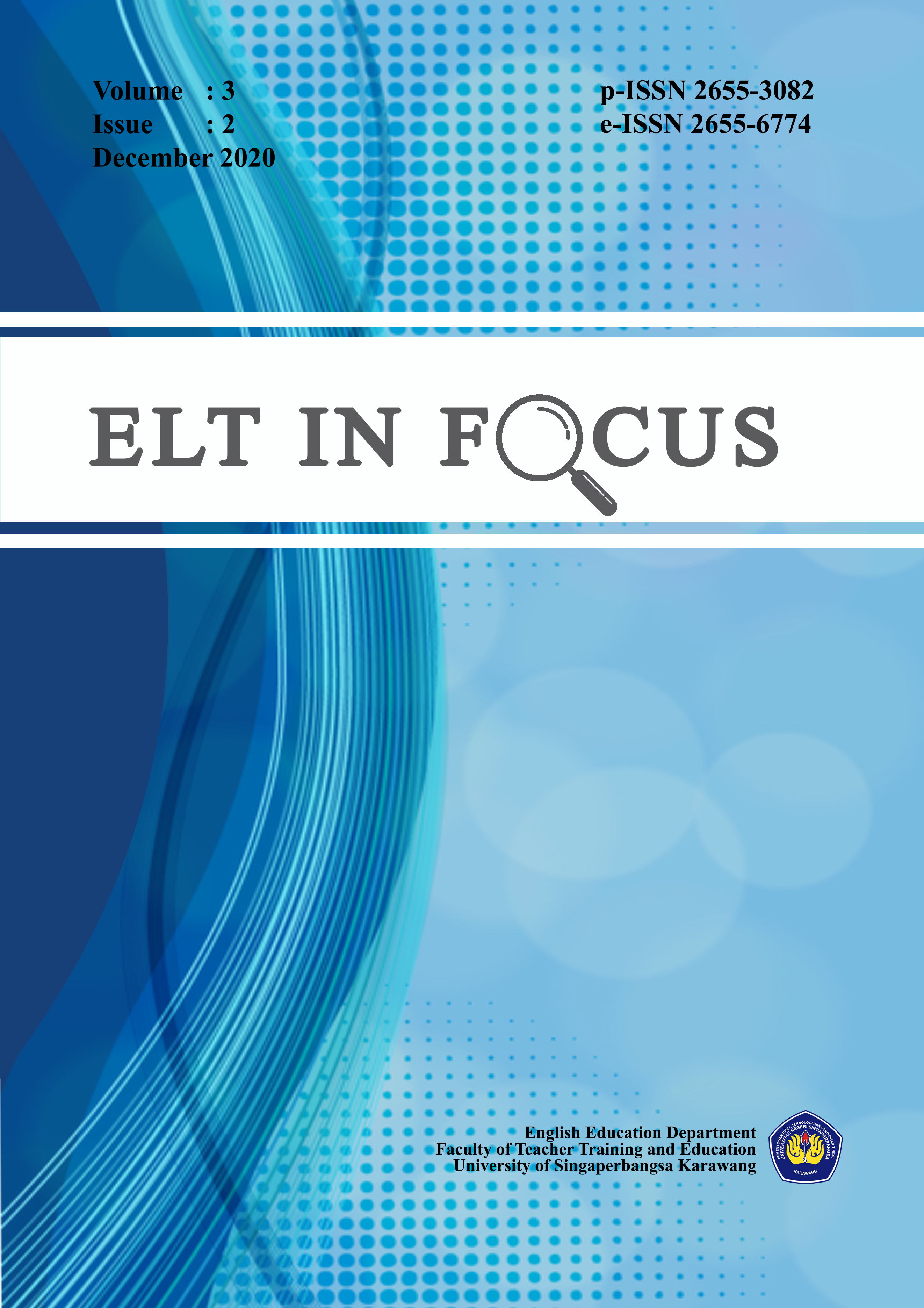Switching Code and Mixing Code in Violation of Cooperation Principles: A Socio-Pragmatic Study
DOI:
https://doi.org/10.35706/eltinfc.v3i2.4357Abstract
The interaction between multilingual speakers creates code-switching and code-mixing. The phenomena have occurred in the learning process of foreign language acquisition. This research is aimed at describing code-switching and code-mixing caused by violating the principle of cooperation occurred in EFL classroom. This research used qualitative case study method. The subjects in the research were 65 English learners in a private university in Jakarta. The data of conversation scripts were analysed using fundamental theories of code-switching, code-mixing, and cooperative principles. The open-ended questionnaire applied to set the object of the study. The results revealed that code-switching includes inter-sentential and intra-sentential. In the meantime, code-mixing includes alternation and insertion. The English learners utilize switch and mix code to accommodate their communication in the target language. The switching and mixing code have positive impacts on the learning process. The students express direct speech in the source or mother language, which is different from the target language, clarifying or emphasizing a message. The degree of speaker relationship is also influenced by whether a statement reflects a personal viewing, thinking, or understanding. The switching and mixing codes happened because of the violation of the cooperation principle. It is naturally accepted to violate the cooperation principle in language classroom. Maxim violation was caused by inadequacy, incompatibility, and misunderstanding of the foreign language acquisition's language discourses.
Downloads
Downloads
Published
Issue
Section
License
Copyright (c) 2021 Rizky Prasetya

This work is licensed under a Creative Commons Attribution-ShareAlike 4.0 International License.




